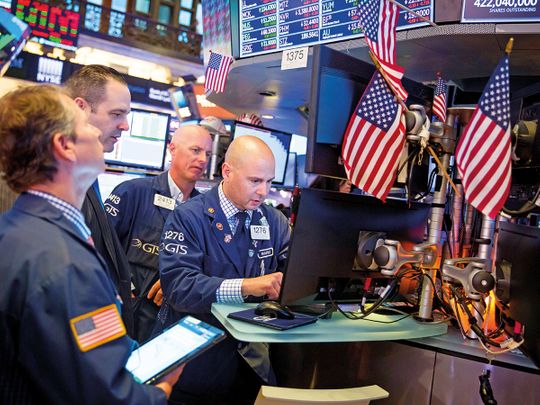
Dubai: With corporate earnings season nearly done in most key economies, the focus this week shifts back to central banks and if interest rates will be hiked in light of the pandemic, going forward.
Decisions from central banks worldwide will this week impact investors betting on a return of inflation, adapting policy stances that range from cautious tolerance to likely interest-rate hikes. The US Federal Reserve, the Bank of England, and Bank of Japan all report monetary policy this week, among others.
“Hot on the heels of the European Central Bank comes the Federal Reserve, Bank of England and Bank of Japan, although all are expected to leave policy unchanged,” wrote Chris Beauchamp, chief market analyst at IG Group.
“However, the market’s focus on yields, inflation and potential impact on monetary policy mean that policymakers will need to provide comment on these issues.”
Evolving central bank stance
About 11 central bank decisions will come out this week. While none of the banks are expected to change their benchmark interest rates, investors will keep an eye out for whether or not they extend or expand various quantitative easing programs.
The most widely-watched announcement will be from the US Federal Reserve, after the European Central Bank last week guaranteed to buy more bonds.
The Bank of England is seen keeping its monetary policy view unchanged, even as they deal with the substantial economic disruption caused by the UK’s exit from the European single market. The Bank of Japan too will unveil a policy review, possibly reiterating its capacity to cut rates further.
Central banks in Norway and Russia may signal shifts to a more aggressive stance, while Brazil and Turkey could deliver the first rate hikes of 2021.
Signs of more progress?
The Bank of Canada met last week and left rates unchanged at a record low 0.25 per cent, which they said will remain there until economic slack is absorbed, which they don’t expect that to happen until 2023.
The S&P 500 ended last week up 2.7 per cent after the highly-awaited $1.9 trillion stimulus package was signed. All S&P 500 sectors had positive returns for the week, with the weakest returns were from the energy sector, as oil prices ended the week down after having risen for the two previous weeks.
This has been coupled with a glut of positive vaccine news. US biotech firm Novavax released clinical trial data indicating the vaccine it’s developing is 96 per cent effective, and the pace of vaccinations was seen accelerating in the past month in several countries worldwide.
Vaccine rollout a positive
While coronavirus cases in the US continue to fall, Germany has declared that the country is in the “third-wave” of the coronavirus, this time due to the UK variant making its way through the country.
Italy is set add new restrictions to sections of the country and go into lockdown over Easter weekend, from April 3-5. Brazil recently surpassed 2,000 daily deaths, with the slowing vaccine rollout a concern.
In addition to the central bank meetings, there are a few notable economic data results that traders will watch. A series of data is seen from China on Monday, US retail sales on Wednesday, and Australia’s February employment figures on Thursday.








